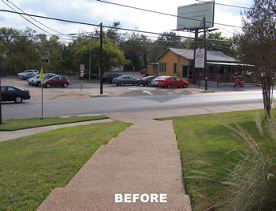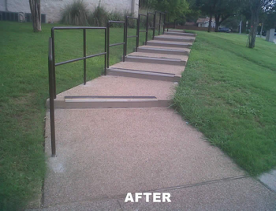“Zero Harm” is our goal - no one hurt or injured. Like the concept of zero waste, zero harm is an ambitious target especially for an institution with over 17,000 employees, but it's also a goal we would like to achieve.
One initiative of Zero Harm is the formation of Safety Committees. Safety Committees explore safety issues in departments, program areas, or workspaces and may act as advisors to the directors or supervisors of these groups. Participation in a Safety Committee is voluntary. The committees usually meet on a monthly basis. Safety Committees make recommendations and work with administrative staff to bring identified safety issues to resolution.
Academic Committees
Chemical Engineering Safety Committee
Research safety is an essential part of the McKetta Department of Chemical Engineering’s mission. We are committed to conducting our research activities in an environment that ensures the safety and protection of the entire chemical engineering community.
Our commitment to safety not only enhances the effectiveness of our research programs but also provides our students with the training and experience they will need to work effectively and safely throughout their professional careers
You should feel free to contact the department’s safety coordinator, Shallaco McDonald, at smcdonald@che.utexas.edu at any time if you have concerns about safety policies or practices.
As part of our commitment, we are collaborating with our Graduate Leadership Council’s Safety Board in order to increase student involvement in addressing issues and creating new initiatives within our department. The Safety Board’s focus is on improving the safety culture among graduate students by giving students a voice in finding solutions to issues as well as empowering them with the resources necessary to address them. Through this program, we aim to not only make research within our department safer but also prepare our graduates to carry a safety-oriented mindset into their future professional and academic careers.
Chemistry Safety Committee
Aerospace Engineering Safety Committee
Non-Academic Committees
Occupational Safety Committee
The Occupational Safety Committee (OSC) is a working level committee charged with the following responsibilities related to UT-Austin occupational safety which includes:
- Developing and reviewing new safety program areas and training;
- Helping to resolve safety issues and making recommendations regarding improvements to safety; and
- Reviewing serious work related injuries or illnesses to determine strategies to help prevent future incidents.
The OSC is currently comprised of representatives from Environmental Health & Safety, HealthPoint Occupational Health Program, Information Technology Services, Facilities Services, Project Management and Construction Services, Capital Planning and Construction, Utilities and Energy Management, Document Solutions, Parking and Transportation Services, University of Texas Police Department, Business and Financial Services, and Intercollegiate Athletics.
If you are interested in learning more about the OSC, please contact Suzanne Kilpatrick at Suzanne.kilpatrick@austin.utexas.edu
PDC
Contact Pilar Avalos pilar.avalos@austin.utexas.edu for information about PDC Safety Committees.
UEM
UHD
https://housing.utexas.edu/about-us/safety
Examples of Safety Committee Initiatives
Academic
- Improved completion of lab safety training by requiring all students to take all required safety training before being issued a key to work in a lab
- Creation of toxic gas ordering and usage procedures
- Monthly lab inspections that are performed and reviewed by committee members
- Disciplinary actions for not using proper personal protective equipment
- Lab cleanouts 2 times a year
- Updating Safety Data Sheet books
Non-Academic
- Installation of handrails for the steps on the east side of FC1


- Safe roof access procedures
- Replacement of old wooden ladders with fiberglass ladders
- Replacement of natural gas heaters in shops after concerns regarding gas odor and improper operation
- Fostering departmental unity on all safety procedures
- Addressing safety concerns brought up by committee representatives, such as significant sidewalk trip hazards, low light work areas, and branches obstructing safety signage
- Setting safety goals
